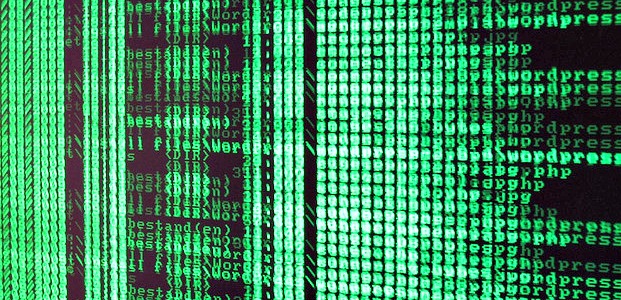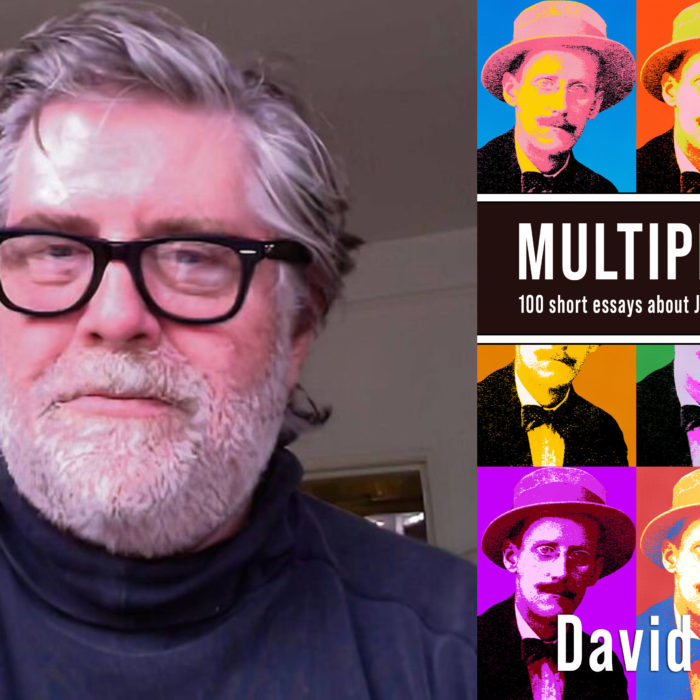You have no items in your cart. Want to get some nice things?
Go shoppingLitro: This is our Augmented Reality issue, and you’re reporting from the frontlines of that field. For those who aren’t familiar with the term, can you give a quick explanation of what Augmented Reality is, or might be in the future?
Bruce: Augmented reality is a system that combines the real and the virtual, is interactive in real time, and is registered in three dimensions.
All the major issues are hidden inside that modest-looking word “registered.” If you want to produce sensory input from a computer into genuine, physical, three-dimensional spaces, there you have to figure out some way to get the “augmentations” to stick there in the “reality.” That’s the big problem in the field. People who understand how to do this understand “augmented reality.” The paradigm of “augmenting reality” is really a kind of computer-science metaphysics, it’s like “virtual reality” or “artificial intelligence” or “thinking machines” or similar large vague notions.
Litro: You’ve been writing at the forefront of technological development for quite some time now. What’s the new technology that has most surprised or impressed you during that time?
Bruce: Well, in terms of “augmented reality,” I was surprised how quickly the sensor technology advanced. Five years ago, if you stuck your hand out in mid-air in real-time, computer vision systems would have only the vaguest data about where your hand was located. Now there are devices like the Kinect and the Leap Motion that can measure that with an accuracy of millimetres.
It turns out that this “gesture recognition” technology has a whole lot of previously unsuspected user-interaction problems, but it amazed me that it works at all. It will still amaze any seven year old child – a Leap Motion really feels like a magic trick. It remains to be seen what these rabbit-in-a-hat actions might be good for – what makes an augmentation impactful, useful and relevant? So far, they remain games, amusements, eye-catching displays, theatrical tricks, art forms. Nobody augments anything from 9 to 5, five days a week.
Litro: On a related note, how big a development do you think Google Glass is? A game-changer, or just the next stepping stone along the path?
Bruce: I think that the Google Glass is basically a side-show for consumers, and that Google’s real path of development is radically advanced computer-vision processing using the full power of Google’s Cloud and Google’s databanks. Glass is just an Android device with a prism that you put on your head; all the real work there is going on through broadband inside Google’s big-iron.
I’ll make a prediction: it will be a bigger deal that Google sees your reality, than you seeing anything that Google might augment onto your own reality. It’ll be like you personally using a search engine, versus the industrial and commercial importance of millions of other Google users interacting with the search engine. Google Glass may be packaged today as an augmentation or a notification service, but Google Glass is really about Big Data. Google has a lot of other paths toward computer-vision versions of Big Data, and so do Apple, Microsoft, Facebook and Amazon.
Litro: Your fiction, and the fiction of some of your contemporaries, has often tried to imagine what the future holds. What fictional tech would you most like to see become reality?
Bruce: I want anything that can halt and/or reverse the Greenhouse Effect. At this point; I’m not picky; climate change is a deadly menace. I saw it become reality. That was awful. And it’s getting worse every day, fast.
Litro: Your most recent book, Love Is Strange, surprised many people by being a love story. What made you decide to write that story?
Bruce: Well, paranormal romance is a big deal in contemporary fantasy genre writing, and I hadn’t written one yet. It’s kind of fun to write romance. Romance has always been a vastly more popular form of fantasy than science fiction is.
Litro: Do you think that science fiction still has the potential to imagine future realities? Or is the technology rapidly catching up with the fiction?
Bruce: Well, the truth is that history and futurity doesn’t really work that way. For instance, technology isn’t ever going to “catch up” with Orwell’s 1984 or Mary Shelley’s Frankenstein. You can say today that mass surveillance is a reality, or that dead guys being medically revived is a reality – but that doesn’t change the nature of those books as cultural artefacts. Like, if somebody today says. “Wow, these shocking Edward Snowden revelations sure are like 1984,” nobody’s going to remark that, wow, they must be thirty years old, then.
As for imagining future realities, that’s not as hard as people let on. Doing it well is about as hard as writing a good book of history, like, one where you try to imagine and portray what life was really like for Akhenaton and Nefertiti. These Egyptian monarchs have had dozens of books written about them, some of them really successful, but none of them are particularly realistic. The truth is, nobody knows what the hell was going on with them in life as they experienced it, and we probably never will. It’s all retrodiction, just words on the page.
Litro: And finally, what does the future hold for Bruce Sterling?
Bruce: Oh, the pages fall off the calendar for all of us, and I’m as mortal as the next guy. All people really need to be happy is something to be enthusiastic about.
 Bruce Sterling, author, journalist, editor, and critic, was born in 1954. Best known for his ten science fiction novels, he also writes short stories, book reviews, design criticism, opinion columns, and introductions for books ranging from Ernst Juenger to Jules Verne. His nonfiction works include The Hacker Crackdown: Law and Disorder on the Electronic Frontier (1992), Tomorrow Now: Envisioning the Next Fifty Years (2003), and Shaping Things (2005). He is a contributing editor of WIRED magazine and writes a weblog.
Bruce Sterling, author, journalist, editor, and critic, was born in 1954. Best known for his ten science fiction novels, he also writes short stories, book reviews, design criticism, opinion columns, and introductions for books ranging from Ernst Juenger to Jules Verne. His nonfiction works include The Hacker Crackdown: Law and Disorder on the Electronic Frontier (1992), Tomorrow Now: Envisioning the Next Fifty Years (2003), and Shaping Things (2005). He is a contributing editor of WIRED magazine and writes a weblog.
About Dan Coxon
Dan Coxon is the Magazine Editor for Litro.co.uk, and the author of Ka Mate: Travels in New Zealand. He lives in London, where he spends his spare time looking after his two-year old son, Jacob. His writing has most recently appeared in Salon, The Portland Review, Neon, Gutter, The Weeklings, The Nervous Breakdown, Spartan, and the Ben Tanzer-edited anthology Daddy Cool. Find more of his writing at www.dancoxon.com, or follow him on Twitter @DanCoxonAuthor.




